Fleurs du Mal Magazine


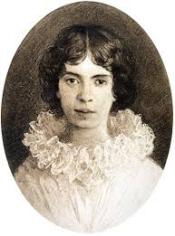
Parting
My life closed twice before its close;
It yet remains to see
If Immortality unveil
A third event to me,
So huge, so hopeless to conceive,
As these that twice befell.
Parting is all we know of heaven,
And all we need of hell.
Emily Dickinson
(1830-1886)
Parting
• fleursdumal.nl magazine
More in: Archive C-D, Archive C-D, Dickinson, Emily
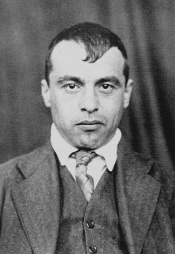
Der Visionarr
Lampe blöck nicht.
Aus der Wand fuhr ein dünner Frauenarm.
Er war bleich und blau geädert.
Die Finger waren mit kostbaren Ringen bepatzt.
Als ich die Hand küßte, erschrak ich:
Sie war lebendig und warm.
Das Gesicht wurde mir zerkratzt.
Ich nahm ein Küchenmesser und zerschnitt ein paar Adern.
Eine große Katze leckte zierlich das Blut vom Boden auf.
Ein Mann indes kroch mit gesträubten Haaren
einen schräg an die Wand gelegten Besenstiel hinauf.
Jakob van Hoddis
(1887 – 1942)
Der Visionarr (Gedicht)
• fleursdumal.nl magazine
More in: Archive G-H, Archive G-H, Hoddis, Jakob van
Les Goncourt furent à la fois acteurs et mordants spectateurs d’un demi-siècle de vie littéraire et artistique. Écrivains, critiques, collectionneurs, ils marquèrent profondément leur temps. Cette biographie, rédigée par les deux plus grands spécialistes des Goncourt et appelée à faire date, renoue les fils de cette intense vie à deux.
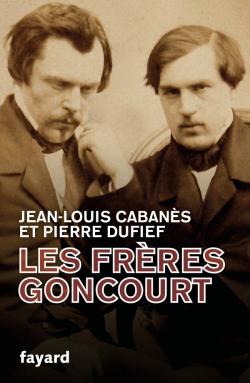 Le nom de Goncourt connaît la célébrité grâce au plus fameux des prix littéraires, mais il mérite aussi de survivre car il fut porté par deux frères, hommes de lettres novateurs, irremplaçables témoins de leur temps.
Le nom de Goncourt connaît la célébrité grâce au plus fameux des prix littéraires, mais il mérite aussi de survivre car il fut porté par deux frères, hommes de lettres novateurs, irremplaçables témoins de leur temps.
Leur double biographie ressuscite un demi-siècle de vie littéraire et artistique, où l’on croise Gautier et Flaubert, où l’on côtoie Renan, Taine, Berthelot, Daudet, Zola. Collectionneurs impénitents, esthètes dolents et élitistes, Jules et Edmond de Goncourt ont transformé leur vie et celle de leurs proches en pages d’écriture. Leur Journal, leurs romans, qui ont initié le naturalisme et la littérature fin de siècle, la création de l’académie des Goncourt, tout témoigne de leur aspiration à la survie littéraire. Leurs engagements avant-gardistes s’associent paradoxalement à un conservatisme politique qui n’exclut ni la misogynie ni l’antisémitisme.
Fondée sur des archives familiales, sur des correspondances largement inédites et sur le dépouillement de la presse de la seconde moitié du xixe siècle, cette biographie magistrale s’attache à l’œuvre littéraire et historique aujourd’hui méconnue, elle renoue les fils d’une intense vie à deux, en pénétrant dans l’intimité affective d’une gémellité fusionnelle.
Jean-Louis Cabanès, professeur émérite à l’université de Paris-Nanterre, spécialiste du roman au xixe siècle et des rapports qu’entretiennent écrits littéraires et textes médicaux, est l’auteur de nombreux ouvrages. Il dirige un collectif chargé d’établir une édition critique du Journal des Goncourt.
Pierre Dufief, professeur émérite à l’université de Paris-Nanterre, a travaillé sur le roman (1850-1914) ainsi que sur les écritures personnelles (Les Écritures de l’intime, Bréal, 2001). Président de la Société des amis des frères Goncourt, il édite la correspondance des deux frères.
Les Frères Goncourt
Jean-Louis Cabanès et Pierre Dufief
Parution: 11/03/2020
Pages: 800
Format: 155 x 235 mm
Collection: Histoire Fayard
EAN: 9782213685960
Prix: € 35.00
Les Frères Goncourt de Jean-Louis Cabanès et Pierre Dufief a reçu la Mention spéciale du Prix Goncourt de la biographie.
# new books
Les Frères Goncourt
Jean-Louis Cabanès & Pierre Dufief
• fleursdumal.nl magazine
More in: #Biography Archives, - Book News, Archive G-H, Archive G-H, Awards & Prizes, Émile Zola, Histoire de France, Jules et Edmond de Goncourt, Libraries in Literature
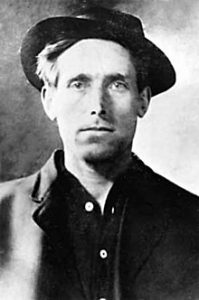
What we want
(Tune: “Rainbow”)
We want all the workers in the world
to organize
Into a great big union grand
And when we all united stand
The world for workers we’ll demand
If the working class could only see
and realize
What mighty power labor has
Then the exploiting master class
It would soon fade away.
CHORUS
Come all ye toilers that work
for wages,
Come from every land,
Join the fighting band,
In one union grand,
Then for the workers we’ll make upon
this earth a paradise
When the slaves get wise
and organize.
We want the sailor and the tailor
and the lumberjacks,
And all the cooks and Laundry girls,
We want the guy that dives for pearls,
The pretty maid that’s making curls,
And the baker and staker
and the chimneysweep
We want the man that’s slinging hash,
The child that works for little cash
In one union grand.
We want the tinner and the skinner
and the chambermaid,
We want the man with spikes on soles,
We want the man that’s digging holes,
We want the man that’s climbing poles,
And the tracker and the mucker
and the hired man
And all the factory girls and clerks,
Yes, we want every one that works,
In one union grand.
Joe Hill
(1879-1915)
What we want
Song
• fleursdumal.nl magazine
More in: # Music Archive, Archive G-H, Joe Hill, Workers of the World
Dans un bel essai biographique, Patricia Bouchenot-Déchin redonne vie à l’auteur de Peau d’âne et du Conte de ma mère l’Oye, en replaçant l’homme au coeur d’un milieu et d’un environnement de relations personnelles.
 Il était une fois cinq frères liés comme les doigts d’une main… Le benjamin, Charles, les mène sur le chemin de la gloire. Et pourtant, après avoir été la cheville ouvrière de l’ambitieuse politique artistique de Louis XIV pendant vingt ans, il est brutalement évincé du pouvoir. L’académicien et écrivain polémiste, blessé, néanmoins toujours joueur, riposte et oppose des rêves fastueux à la réalité. Champion des Modernes contre les Anciens, il laisse paraître, au terme d’une vie bien remplie, ses contes – toujours aussi célèbres aujourd’hui – mais étrangement sous le seul nom de son fils.
Il était une fois cinq frères liés comme les doigts d’une main… Le benjamin, Charles, les mène sur le chemin de la gloire. Et pourtant, après avoir été la cheville ouvrière de l’ambitieuse politique artistique de Louis XIV pendant vingt ans, il est brutalement évincé du pouvoir. L’académicien et écrivain polémiste, blessé, néanmoins toujours joueur, riposte et oppose des rêves fastueux à la réalité. Champion des Modernes contre les Anciens, il laisse paraître, au terme d’une vie bien remplie, ses contes – toujours aussi célèbres aujourd’hui – mais étrangement sous le seul nom de son fils.
Dans une biographie pleine d’allant et riche en inédits, Patricia Bouchenot-Déchin révèle un homme complexe et fantasque. Son destin héroïque et tragique, façonné dans le miroir ardent de ses métamorphoses, s’apparente à celui d’un Petit Poucet devenu tour à tour Chat botté, prince charmant et Barbe bleue.
Patricia Bouchenot-Déchin a publié biographies, essais et romans. Ses travaux sur André Le Nôtre et sa biographie parue chez Fayard ont reçu de nombreux prix en Europe et aux États-Unis parmi lesquels, en France, le prix Hugues Capet 2013 et en 2014 le prix d’Académie de l’Académie française.
Charles Perrault
par Patricia Bouchenot-Déchin
2018
Pages: 360
Format: 135 x 215 mm
Collection: Histoire
FAYARD
EAN: 9782213705644
€ 21.90
# new books
Charles Perrault
par Patricia Bouchenot-Déchin
• fleursdumal.nl magazine
More in: #Biography Archives, - Book News, Archive A-B, Archive O-P, Grimm, Andersen e.o.: Fables, Fairy Tales & Stories, Histoire de France, Perrault
Selected by Carol Ann Duffy for Laureate’s Choice Love, death, Bruce Willis, public urination, being a woman, love, The Nanny, love. This pamphlet of poetry by Hera Lindsay Bird is a startling departure from her bestselling debut Hera Lindsay Bird by defying convention and remaining exactly the same, only worse.
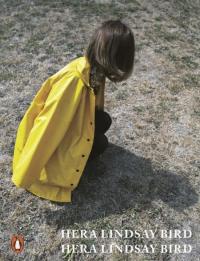 This collection, which focusing on love, childish behaviours, 90’s celebrity references and being a woman is sure to confirm all your worst suspicions and prejudices. In a recent comments section on the Guardian, her work has been described as “This comment was removed by a moderator because it didn’t abide by our community standards. Replies may also be deleted. For more detail see our FAQs,” and “This comment was removed by a moderator because it didn’t abide by our community standards. Replies may also be deleted. For more detail see our FAQs.”
This collection, which focusing on love, childish behaviours, 90’s celebrity references and being a woman is sure to confirm all your worst suspicions and prejudices. In a recent comments section on the Guardian, her work has been described as “This comment was removed by a moderator because it didn’t abide by our community standards. Replies may also be deleted. For more detail see our FAQs,” and “This comment was removed by a moderator because it didn’t abide by our community standards. Replies may also be deleted. For more detail see our FAQs.”
“Keats is dead so fuck me from behind
Slowly and with carnal purpose
Some black midwinter afternoon
While all the children are walking home from school
Peel my stockings down with your teeth
Coleridge is dead and Auden too”
Hera Lindsay Bird has a MA in poetry from Victoria University of Wellington, where she won the 2011 Adam Prize. Her work has been published by The Toast, The Hairpin, Sport, Hue & Cry, The Spinoff, The New Zealand Listener and Best New Zealand Poems. In 2017, she won the Jessie Mackay Best First Book Award for Poetry and the Sarah Broom Poetry Prize. She is currently living in Wellington.
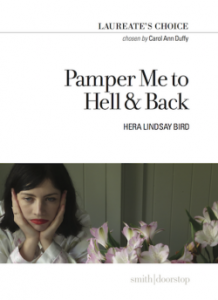 Hera Lindsay Bird
Hera Lindsay Bird
Pamper Me to Hell and Back
English Poetry
Publisher: Smith/Doorstop Books/
Penguin Books Ltd
112 pages
ISBN-10: 1910367842
ISBN-13: 978-1910367841
NUR code 306
Paperback
$11.69
# new poetry
Hera Lindsay Bird
Pamper Me to Hell and Back
• fleursdumal.nl magazine
More in: #Editors Choice Archiv, - Book News, Archive A-B, Archive A-B, LITERARY MAGAZINES
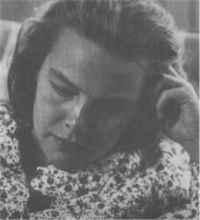
Survivors—Found
We thought that they were gone—
we rarely saw them on our screens—
those everyday Americans
with workaday routines,
and the heroes standing ready—
not glamorous enough—
on days without a tragedy,
we clicked—and turned them off.
We only saw the cynics—
the dropouts, show-offs, snobs—
the right- and left- wing critics:
we saw that they were us.
But with the wounds of Tuesday
when the smoke began to clear,
we rubbed away our stony gaze—
and watched them reappear:
the waitress in the tower,
the broker reading mail,
a pair of window washers,
filling up a final pail,
the husband’s last “I love you”
from the last seat of a plane,
the tourist taking in a view
no one would see again,
the fireman, his eyes ablaze
as he climbed the swaying stairs—
he knew someone might still be saved.
We wondered who it was.
We glimpsed them through the rubble:
the ones who lost their lives,
the heroes’ double burials,
the ones now “left behind,”
the ones who rolled a sleeve up,
the ones in scrubs and masks,
the ones who lifted buckets
filled with stone and grief and ash:
some spoke a different language—
still no one missed a phrase;
the soot had softened every face
of every shade and age—
“the greatest generation” ?—
we wondered where they’d gone—
they hadn’t left directions
how to find our nation-home:
for thirty years we saw few signs,
but now in swirls of dust,
they were alive—they had survived—
we saw that they were us.
Joan Murray
(1917-1942)
Survivors—Found
(poem)
• fleursdumal.nl magazine
More in: Archive M-N, Archive M-N, Joan Murray
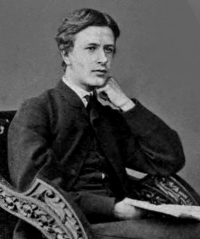
After reading Homer
Happy the man, who on the mountain-side
Bending o’er fern and flowers his basket fills :
Yet he will never know the outline-power,
The awful Whole of the Eternal Hills.
So some there are, who never feel the strength
In thy blind eyes, majestic and complete,
Which conquers those, who motionlessly sit,
O dear divine old Giant, at thy feet.
Digby Mackworth Dolben
(1848 – 1867)
After reading Homer
• fleursdumal.nl magazine
More in: Archive C-D, Archive C-D, Digby Mackworth Dolben
Announcing the 2020 Norma Farber Award winner, Zaina Alsous with A Theory of Birds (Poems)
Aina Alsous is the 2020 recipient of the Poetry Society of America’s Norma Farber Book Award for her book A Theory of Birds (University of Arkansas Press). The Norma Farber Book Award honors a first book of original poetry written by a living author.
 The Judge was Matthew Shenoda. Matthew Shenoda’s Citation: In Zaina Alsous’ A Theory of Birds we are ushered into a re-calibration of the world, one intent on the eradication of that which has been oppressive and divisive. In these poems history unravels us in fragments, causing us to fold ourselves into a new definition of “self” and an unabashed rejection of our positions as “subjects.” The poems found here are an honest and open exploration of how we come into a sense of our own understanding in a postcolonial world. Alsous’ poems are driven by the asking, often posing sentient questions like “who translated kings and not birds?”; questions that cause us to think of redefinition. And while her poems are searing in their critiques of political, racial, and gendered domination, like all good artists she is poignant in her ability to implicate herself at every turn and help us break through the binaries we often use to define ourselves. Hers is an aesthetic of fragmentation as a collective piecing together. A Theory of Birds teaches us that the interior narratives, the often quiet things that make each of us whole, are the most essential.
The Judge was Matthew Shenoda. Matthew Shenoda’s Citation: In Zaina Alsous’ A Theory of Birds we are ushered into a re-calibration of the world, one intent on the eradication of that which has been oppressive and divisive. In these poems history unravels us in fragments, causing us to fold ourselves into a new definition of “self” and an unabashed rejection of our positions as “subjects.” The poems found here are an honest and open exploration of how we come into a sense of our own understanding in a postcolonial world. Alsous’ poems are driven by the asking, often posing sentient questions like “who translated kings and not birds?”; questions that cause us to think of redefinition. And while her poems are searing in their critiques of political, racial, and gendered domination, like all good artists she is poignant in her ability to implicate herself at every turn and help us break through the binaries we often use to define ourselves. Hers is an aesthetic of fragmentation as a collective piecing together. A Theory of Birds teaches us that the interior narratives, the often quiet things that make each of us whole, are the most essential.
Zaina Alsous is a prison abolitionist, a daughter of the Palestinian diaspora, and a movement worker in South Florida. Her poetry, reviews, and essays have been published in POETRY Magazine, The Kenyon Review, the New Inquiry, Adroit, and elsewhere. She edits for Scalawag Magazine, a publication dedicated to unsettling dominant narratives of the U.S. South. Her chapbook Lemon Effigies won the Rick Campbell Chapbook Prize and was published by Anhinga Press. Her first full-length collection A Theory of Birds won the Etel Adnan Poetry Prize, and was published by the University of Arkansas Press in the fall of 2019.
Every year the University of Arkansas Press, together with the Radius of Arab American Writers, awards the Etel Adnan Poetry Prize for a first or second book of poetry in English by a writer of Arab heritage. The series is edited by Hayan Charara and Fady Joudah and supported by the King Fahd Center for Middle East Studies at the University of Arkansas.
A Theory of Birds
Poems by Zaina Alsous
978-1-68226-104-0 (paper)
$16.95
70 pages
September 2019
University of Arkansas Press
“Inside the dodo bird is a forest, Inside the forest
a peach analog, Inside the peach analog a woman, Inside
the woman a lake of funerals”
• fleursdumal.nl magazine
More in: - Book News, - Book Stories, - Bookstores, Archive A-B, Archive A-B, Art & Literature News, Awards & Prizes, Literary Events

Crépuscule
Frôlée par les ombres des morts
Sur l’herbe où le jour s’exténue
L’arlequine s’est mise nue
Et dans l’étang mire son corps
Un charlatan crépusculaire
Vante les tours que l’on va faire
Le ciel sans teinte est constellé
D’astres pâles comme du lait
Sur les tréteaux l’arlequin blême
Salue d’abord les spectateurs
Des sorciers venus de Bohême
Quelques fées et les enchanteurs
Ayant décroché une étoile
Il la manie à bras tendu
Tandis que des pieds un pendu
Sonne en mesure les cymbales
L’aveugle berce un bel enfant
La biche passe avec ses faons
Le nain regarde d’un air triste
Grandir l’arlequin trismégiste
Guillaume Apollinaire
(1880 – 1918)
Crépuscule
• fleursdumal.nl magazine
More in: Apollinaire, Guillaume, Archive A-B, Archive A-B, Guillaume Apollinaire
First complete translation into English by Kathleen McNerney and Helena Buffery ⊕ Contains the most beautiful prose I’ve ever read in Catalan – Anna Murià, novelist and translator
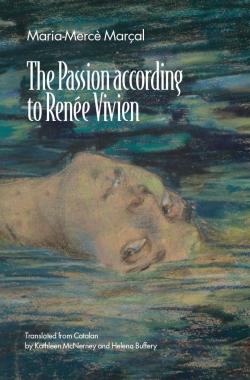 In this often poetic and lyrical novel by the revered Catalan poet Maria-Mercè Marçal, we are taken on a journey through the multiple, mobile and contradictory life, letters and loves of the fin-de-siècle Anglo-French writer, Pauline Tarn-Renée Vivien, as researched and reimagined by two principal narrators – a 1980s Catalan documentary film-maker Sara T. and a 1920s French archaeology scholar and museologist Salomon Reinach – alongside the voices of the various friends, relations, lovers, companions and servants who made her acquaintance at different moments in her life.
In this often poetic and lyrical novel by the revered Catalan poet Maria-Mercè Marçal, we are taken on a journey through the multiple, mobile and contradictory life, letters and loves of the fin-de-siècle Anglo-French writer, Pauline Tarn-Renée Vivien, as researched and reimagined by two principal narrators – a 1980s Catalan documentary film-maker Sara T. and a 1920s French archaeology scholar and museologist Salomon Reinach – alongside the voices of the various friends, relations, lovers, companions and servants who made her acquaintance at different moments in her life.
In the process, we are presented with a compelling reconstruction of the Belle Époque and interwar years in Paris, alongside other key sites in this transformational literary geography – Nice, Bayreuth, Switzerland, Istanbul, and the island of Lesbos – that include often dazzling evocations of other cultural figures and influencers of the age, from Zola to Pierre Louÿs and Remy de Gourmont, Liane de Pougy to Mathilde de Morny and Colette, not forgetting the central figure of Natalie Clifford-Barney, the ‘Amazone’.
Maria-Mercè Marçal:
The Passion according to Renée Vivien
Translation into English by Kathleen McNerney and Helena Buffery
Francis Boutle publishers
ISBN 9781916490659
Language: English
Format: paperback
Number of pages 354
£12
»» website Francis Boutle publishers
# new books
Maria-Mercè Marçal:
The Passion according to Renée Vivien
• fleursdumal.nl magazine
More in: - Book News, - Book Stories, Archive M-N, Archive U-V, Archive U-V, Émile Zola, Renée Vivien, Vivien, Renée
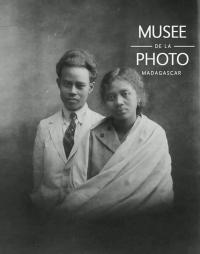
Matin Malade
Matin d’été, ô matin d’été,
bel et triste comme mon cœur,
tes arbres tremblent dans la clarté
en berçant mollement leur langueur.
Quel espoir de soleil virtuel,
paysage vert sans ramiers,
te nourrit de son leurre cruel
qui colore à peine tes palmiers
et te fait un frère adultérin
d’un sentiment lourd de chagrin
et plus lourd encor de soif d’azur
que du poids de l’épuisante nuit
qui m’a tendu son fruit bien mûr
mais gonflé de vénéneux ennui ?
Jean-Joseph Rabearivelo
(1901?/1903? – 1937)
Matin Malade (poème)
• fleursdumal.nl magazine
More in: Archive Q-R, Archive Q-R, Jean-Joseph Rabearivelo
Thank you for reading Fleurs du Mal - magazine for art & literature